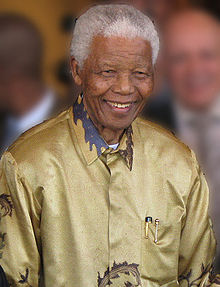August 28, 2014
by wkirkland
The obituary today for Helen Bamber, a long time healer to those who had been tortured, reminds us of the very best humans have to offer one another, and the worst.
Helen Bamber, whose volunteering to comfort broken survivors of a Nazi concentration camp when she was 19 inspired her to devote her next seven decades to helping more than 50,000 victims of torture in 90 countries, died on Aug. 21 in London. She was 89.
… Ms. Bamber said the worst toll of torture was psychic — “the act of killing a man without dying,” a survivor once told her. Torture, she wrote in an autobiography for her foundation, constitutes “a total perversion of all that is good in human relationships.”
“It is designed to destroy not only the physical and psychological integrity of one individual, but with every blow, with every electrode, his or her family and the next generation,” she continued. “The body betrays and is often discarded, a body to be hated for its scars and injuries, a body which is a constant reminder even if there are no scars or remaining injuries.”
Her approach was to treat the whole person, often in group therapy, which she saw as giving alienated victims a sense of community. She recruited dozens of professionals to treat more than 2,000 victims a year, and worked with many patients herself as a psychotherapist — which she became through experience, she said, rather than an academic degree.
Her method involved revisiting victims’ worst horrors and letting them “vomit” them out.
“You have to move into the torture chamber with them,” she told the British newspaper The Observer in 1999. “You almost have to be tortured with them.”
The next step, she told The Irish Times in 1995, is to work with the “noble and good” qualities that can enable a victim to survive. It was enough, she said, to take a victim’s story, hold it and say, “Yes, I believe you.”
Her theory, and practice, of immersion with the sufferer, back into the horror and repetitively talking it out, is much the same as that which has helped those gripped by traumatic stress (PTSD). As Daniel Shay in his ground breaking book Achilles in Vietnam, says, “healing from trauma depends upon communication of the trauma–being able safely to tell the story to someone who is listening and who can be trusted to retell it truthfully to others in the community.”
The two faces of war trauma, both responsive to re-connecting with the human community that was lost.
Another teacher gone, but a legacy left of those who can carry on the work.




Recent Comments